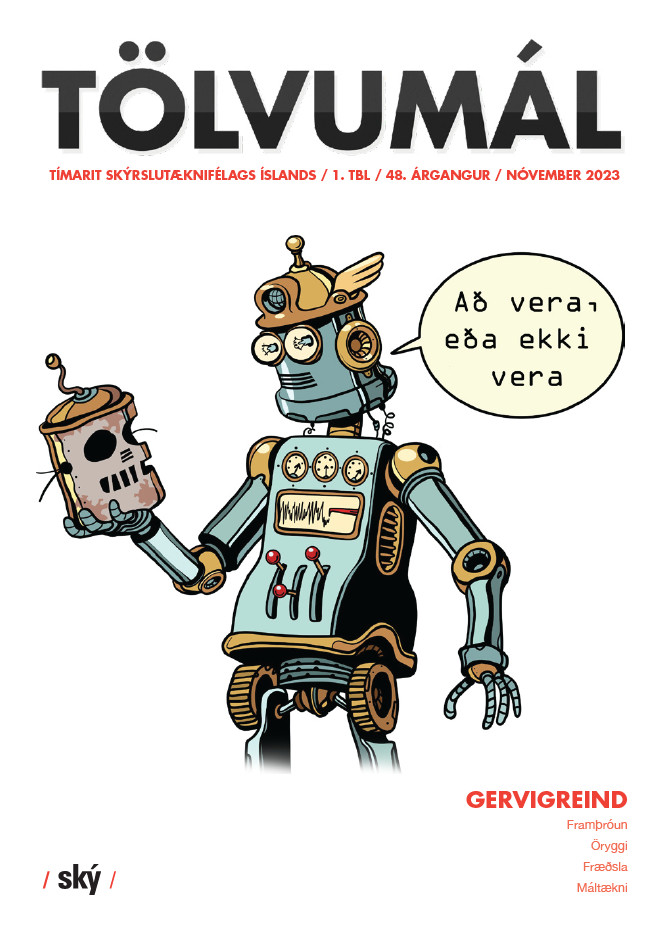
Just say no to the Y2-kay-eye!
 “I am so grateful that there are no illegally parked cars on this corner right now. That would be awful in these horribly icy driving conditions!”, I thought to myself on a dark Wednesday morning last winter as I made a tight left turn at the end of my street in the city centre of Reykjavík, which was obviously only designed for people travelling by foot or a small horse.
“I am so grateful that there are no illegally parked cars on this corner right now. That would be awful in these horribly icy driving conditions!”, I thought to myself on a dark Wednesday morning last winter as I made a tight left turn at the end of my street in the city centre of Reykjavík, which was obviously only designed for people travelling by foot or a small horse.
As I pondered on how wonderful it would be if something could be done to permanently prevent cars from parking there, a warning flag suddenly arose in me at times all-too-solution-oriented thought process.
Let’s say I report my grievances to the city, stating: “This corner is a hot spot for illegal parking, something must be done!”. If the recipient was unwise to the situation an obvious idea might just as well be to install blockades or closing the street, certainly preventing cars from parking there… but be careful what you wish for!
The recent unlocking of the seemingly limitless power of artificial intelligence leads to the next logical level in proper utilisation of technology to be understanding humans, including oneself.
I believe that the rise of seeking consultancy along with building in-house-knowledge, instead of outsourcing problem solving is a natural evolution in optimisation, because superficial fixes that do not improve situations are both costly and frustrating. Especially if the issue does not even get identified appropriately.
For you see, rogue cars are not my problem. The actual issue in this situation is that sometimes there is insufficient space to manoeuvre around that tight corner. This perspective allows for infinite options, some as easy as simply making a right turn instead of a left, with no further action needed.
Even though you are the subject matter expert, consulting specialists in detecting where focus should be directed and which questions to ask can often be a key factor in saving; time, resources, and money, in the long run.
I am confident in asserting that machine learning algorithms and other artificial-intelligence systems should not be perceived as on the path to replace humans but rather augment and magnify human-intelligence, leaving more time for us to focus on wisdom.
It saddens me to see that some minds I greatly respect have become outspoken in fuelling fear about “The AI” overlord or “The Algorithms” ruining our children’s brains. #y2k_ai
A critical element in this field is to constantly keep holding humans responsible for their decisions, and - make no mistake - every decision made using an AI, or not, is the immutable responsibility of those who had the choice to use it. There is no “Computer made me do it” or “Computer says no” in actuality, because behind every computation is a set of rules determined by humans at some point.
To continuously reiterate this, I strongly suggest practising mindful language with intentional dehumanisation of “the AI”. I.e., “Company X is using AI to determine the credit score of applicants” instead of “At company X, AI is now determining the credit scores of applicants”.
There is a subtle but imperative shift in the subliminal message of those two statements and my human intuition keeps screaming about how important this is, to ease the minds of the “non-technical public’s” impression of this technology, and avoid another Y2K situation.
Revisiting the nuisance of street parking in 101 Reykjavík, I truly hope we can all agree on the importance of having humans involved in the process and ultimately responsible for actions with consequences.
Bear in mind that we have all known for quite some time now that the answer is indeed 42, but it is becoming increasingly more evident that the true challenge is articulating the right question.
Höfundur: Inga Ingólfsdóttir, tölvunarfræðingur
Skil á efni
Leita í vefútgáfu Tölvumála
Um Tölvumál
Tölvumál - tímarit Skýrslutæknifélags Íslands er óháð tímarit um tölvutækni og hefur verið gefið út frá árinu 1976.
Vefútgáfa Tölvumála birtir vikulega nýja grein á vef Ský og árlega er gefið út veglegt prentað tímarit undir nafninu "Tölvumál" þar sem fjallað er um tölvutækni frá ýmsum sjónarhornum og er þema blaðsins jafnan valið snemma árs og útgáfa að hausti.
Ritnefnd Ský sér um að afla efni í Tölvumál og geta allir sem áhuga hafa sent inn efni.
